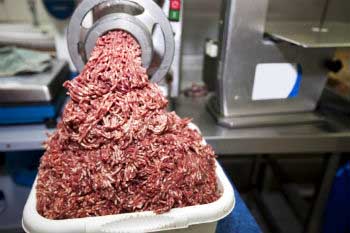Processed meat: what it is and why WHO recommends not to eat
Do you know what is processed meat? WHO has recently classified it as carcinogenic. Find out why and what are its risks according to the UNIn late October 2015, WHO (World Health Organization) made the front pages of general information, a fact almost exclusively reserved to the announcement of global pandemics. The reason? This agency of the UN (United Nations Organization) had just declared processed meats carcinogenic and red meat "probably carcinogenic."

This official notice of the WHO was followed by an immediate rejection of the meat industry, led by the American Meat Institute, who said that "the report lacks common sense and contradicts dozens of studies in which no correlation was found between meat and cancer."
However, the study of the IARC (International Agency for Research on Cancer) is conclusive in the eyes of the World Health Organization, which has included processed meats in the group of most dangerous substances for man with tobacco, alcohol, plutonium and another one hundred products.
What is processed meat?
Along with the controversial announcement, WHO also provided a guide that details what are the requirements for meat to be considered as processed: "Processed meat refers to meat that has been transformed through salting, curing, fermentation, smoking or other processes to enhance flavour or improve preservation. Most processed meats contain pork or beef, but processed meats may also contain other red meats, poultry, offal, or meat by-products such as blood."
This includes foods such as hot dogs (Frankfurt and the fresh from butchers), sausages of all kinds: ham, biltong and all cured and dried meat, canned meat (e. g., lean pork), cooked dishes and sauces containing meat as the main product (casseroles, bolognese ...).
What makes this food cause cancer?

The reason lies in several of its compounds: haem iron, which can damage the lining of the colon; nitrates, used in meat processing as a preservative; or polycyclic aromatic hydrocarbons, which are generated in certain processes such as smoking or cooking at high temperatures.
Red meat, also under the microscope
The health alert has not fired only on processed meats. Another widely consumed product, the red meat, is also being investigated by WHO. The UN agency has warned of its possible status as a carcinogen: "In the case of processed meat, this classification is based on sufficient evidence from epidemiological studies that eating processed meat causes colorectal cancer, and a strong mechanistic evidence, but other explanations for the observations could not be ruled out".
Should we then stop eating meat?
WHO is clear: no, although we must limit its consumption and pursue a sustainable food system. "Eating meat has known health benefits. Many national health recommendations advise people to limit intake of processed meat and red meat, which are linked to increased risks of death from heart disease, diabetes, and other illnesses".
What is your opinion about this announcement of the World Health Organization? Participate with your comments.
Sources: World Health Organization, El País, Huffington Post and El Confidencial.






